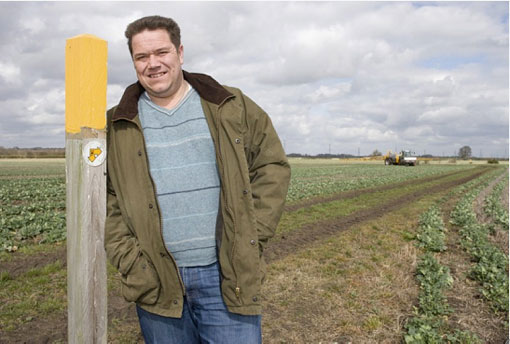Keith Challen looks forward to starting his winter projects

I’m determined to be positive, as I’m well aware there are others with worse conditions than me. We are at least drilled up with a high proportion of wheat up and in row now, even if we have dozens of puddles around the farm.
Oilseed rape is growing very slowly and is about to get a mix of phosphate, zinc, boron and fungicide, with Plover (difenoconazole) being the product of choice. Hopefully, we now have slugs held at bay; fields that didn’t get rolled are suffering noticeably more from grazing in both wheat and rape.
As the workload eases on the arable side, we start to focus on the elders, with mowing and pruning operations demanding immediate attention. We tend to hard prune about a quarter of the stock, literally cutting them off about 45cm (18in) above ground encouraging new growth to sprout up from the stool. Elders are shallow rooted and sensitive to soil compaction, so we have to be very careful when mowing, especially in wet years like this. It’s debatable which causes least damage – sheep or the mowers.
I always like to review the season’s successes and failures to determine where we can focus our efforts to improve efficiency next season. This year’s draft reads like we need a lottery win: not enough combine capacity, not enough rolling capacity, not enough rape drilling capacity and on it goes.
With winter around the corner, I look forward to getting into the workshop and getting on with some projects. A new home-made rape drill is on the cards. We need to be up to 8m, but before we tackle that, we are going to modify our chaser bins to side tip over our grain trailers to simplify the system. I just need 10min with a couple of fag packet drawings first.
Keith Challen manages 800ha of heavy clay soils in the Vale of Belvoir, Leicestershire, for Belvoir Fruit Farms. Cropping includes wheat, oilseed rape and elderflowers. The farm is also home to the Belvoir Fruit Farms drinks business

